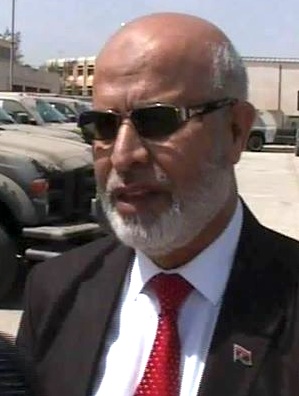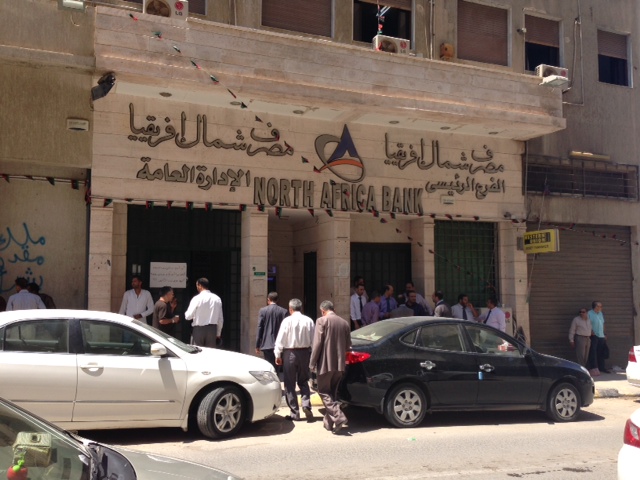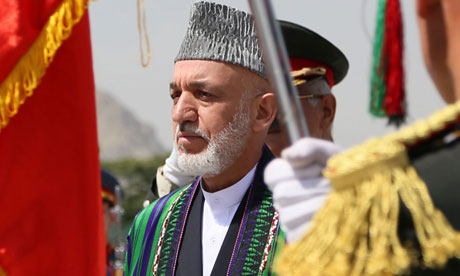Syrian rebels going off the reservation again.....
http://news.antiwar.com/2013/08/20/syrian-rebels-threaten-to-attack-un-troops-in-golan/
 The zone was set up in May of 1974 after clashes over Israel’s occupation of parts of the Golan Heights. The demilitarized zone was meant to put some distance between Israel and Syrian forces, however, and not to give the rebels an uncontested stranglehold on the region.
The zone was set up in May of 1974 after clashes over Israel’s occupation of parts of the Golan Heights. The demilitarized zone was meant to put some distance between Israel and Syrian forces, however, and not to give the rebels an uncontested stranglehold on the region.
 The fighters, from the Islamic State of Iraq and the Levant, engaged in fierce battles with Syrian Kurdish faction YPG, which has organized militias around the region, insisting every able-bodied Kurdish man has to resist the Islamist takeover.
The fighters, from the Islamic State of Iraq and the Levant, engaged in fierce battles with Syrian Kurdish faction YPG, which has organized militias around the region, insisting every able-bodied Kurdish man has to resist the Islamist takeover.


http://news.antiwar.com/2013/08/20/syrian-rebels-threaten-to-attack-un-troops-in-golan/
Syrian Rebels Threaten to Attack UN Troops in Golan
Insists UN Must Prevent Syrian Tanks From Entering DMZ
by Jason Ditz, August 20, 2013
In an open letter to the UN Disengagement Observer Force in the Golan Heights, a Syrian rebel faction has threatened to begin targeting the UNDOF troops if they don’t prevent Syria from deploying military forces into the demilitarized zone.
 The zone was set up in May of 1974 after clashes over Israel’s occupation of parts of the Golan Heights. The demilitarized zone was meant to put some distance between Israel and Syrian forces, however, and not to give the rebels an uncontested stranglehold on the region.
The zone was set up in May of 1974 after clashes over Israel’s occupation of parts of the Golan Heights. The demilitarized zone was meant to put some distance between Israel and Syrian forces, however, and not to give the rebels an uncontested stranglehold on the region.
Moreover, the rebels have been targeting the UNDOF troops off and on for months already, with multiple kidnappings and several nations pulling out over the danger of the ongoing civil war.
The UN has commented on the latest rebel demands, but in practice its observer force isn’t powerful enough to force Syria’s military out of the zone, and since the incursions have nothing to do with the UNDOF mission of keeping Syria and Israel from fighting, it’s hard to imagine the UN Security Council is going to support the rebel interpretation.
http://news.antiwar.com/2013/08/20/heavy-fighting-as-al-qaeda-attacks-kurdish-villages-in-syria/
Heavy Fighting as al-Qaeda Attacks Kurdish Villages in Syria
Syrian Kurds Continue to Flee Into Neighboring Iraq
by Jason Ditz, August 20, 2013
More heavy fighting was reported today in West Kurdistan, where al-Qaeda fighters attacked three Kurdish villages near the border town of Ras al-Ayn, a vital border crossing the Islamists have repeatedly tried to capture.
 The fighters, from the Islamic State of Iraq and the Levant, engaged in fierce battles with Syrian Kurdish faction YPG, which has organized militias around the region, insisting every able-bodied Kurdish man has to resist the Islamist takeover.
The fighters, from the Islamic State of Iraq and the Levant, engaged in fierce battles with Syrian Kurdish faction YPG, which has organized militias around the region, insisting every able-bodied Kurdish man has to resist the Islamist takeover.
As the fighting picks up, yet more Kurdish women and children are crossing the border into Iraqi Kurdistan, where UN officials yesterday estimated that some 30,000 had already fled in just the past few days.
The fight over West Kurdistan has become a sort of war-within-a-war for Syria, as the Kurds had attempted to stay neutral until rebel factions showed up in their oil-rich territory trying to claim it as a “liberated” region under their control.
Libya - for the future of Syria if the West and GCC have its way ......
Bank of North Africa manager seized by brigade
By Aimen Eljali.
Tripoli, 17 August 2013:
Staff at the head office of the Bank of North Africa in Tripoli’s Dahra district went on strike today after the general manager was seized this morning by brigadesmen saying that he had stolen millions of euros from the bank.
Claiming that the general manager, Ali Zeidi, had been beaten in of them, some 40 staff protested outside the bank, next to the Planning Ministry, insisting that the embezzlement claims were none of the brigade’s business, that they were for the government to investigate.
They accused the brigadesmen of seizing the manager not because they were concerned about dealing with crime, but because they wanted get their hands on the money themselves. It was not the first time this had happened, the staff said, but did not provide details of other instances.
A spokesman for the Interior Ministry said he know nothing about the incident.
Staff at other branches of the North Africa Bank, including Sebha, stopped work and came out in protest at the seizure this afternoon.
EU ambassador’s convoy attacked and escort vehicle robbed
By Nigel Ash

EU ambassador Nataliya Apostolova whose convoy was attacked
Tripoli, 20 August 2013:
The last close support vehicle in a three-car convoy carrying EU Ambassador Nataliya Apostolova, was rammed outside the Corinthia Hotel and its occupants robbed at gun point. When the EU vehicle later tried to leave the scene, the thieves opened fire on it.
The ambassador’s car, which with the lead security escort, had been ahead of the attacked vehicle, appears not to have been targeted. Both EU cars left the location at speed.
A formal complaint has been lodged with the Libyan government over the attack, which took place in broad daylight yesterday afternoon, as the ambassador’s convoy left the Corinthia on its way to her residence in Palm City.
An EU source explained that the “soft-skinned” escort vehicle had been hit by another car without plates. “The close protection officer on board got out to speak to the other driver and was threatened with a gun. The men then stole some articles from the car ”, explained the source.
The EU security man re-boarded his vehicle and his driver sought to leave the scene. At this point, several shots were fired at it. There were no injuries to the EU personnel apart from some bruising sustained by the close protection officer. The damaged white EU vehicle returned to the Corinthia parking area, where guests noted its smashed rear window.
It has been alleged that security staff at the Corinthia garage opposite the attack, had not sought to intervene during the incident. In addition, a police vehicle had reportedly driven up to the crime scene and, perhaps because the officers inside had seen the robbers’ guns, it had also held back from becoming involved.
The EU ambassador’s own armoured vehicle and its surviving escort continued safely to Palm City. In recent days there have apparently been concerns that EU vehicles may have been shadowed by unidentifiable vehicles.
Interior Minister Mohamed Al-Sheikh quits after four months
By Ahmed Elumami

Mohamed Al-Sheikh quits after four months
Tripoli, 18 August 2013:
The Interior Minister Mohamed Al-Sheikh resigned today, saying that the Prime Minister Ali Zeidan had withdrawn all powers from him and he could not do his job properly. Sheikh has been in his job for just four months.
Rami Kaal, the spokesman of the Interior Ministry, told the Libya Herald that the minister had said he had quit because the Prime Minister disrupted all his solutions to activate the police and the interior ministry.
Other sources have indicated that the minister was unhappy with what he described as interference from some some of his deputy ministers.
It has been reported that Sheikh also claimed one of the major reasons he quit was pressure from some Congress members to appoint their relatives to important security positions.
Sheikh said on state TV Al-Wataniya that he was prepared to stay in office until a replacement could be found. However Zeidan accepted his resignation immediately and appointed deputy prime minister Dr. Saddiq Abdulkareem to run the ministry on a temporary basis.
Sheikh was given the interior ministry job after the resignation of Ashour Shuwail in May, following the passing of the Political Isolation Law.
Libyan Navy warns it will inspect oil tankers
By Houda Mzioudet.
Tripoli, 20 August 2013.
The Libyan navy has announced it is starting patrols to prevent illegal exports of Libyan oil.
In a statement today the Chief of Staff of Libyan Naval Forces warned foreign government, as well as marine companies and shipping agencies that its ships had began sea patrols off the oil ports of Sidra, Ras Lanuf and Brega, following orders from the government and the Libyan Chief of Staff.
According to the Libyan news agency LANA, the navy intends to inspect tankers in the area to ensure all comply with safety procedures and none is shipping Libyan crude oil without proof of a contract from National Oil Corporation, it being the only legitimate body authorised to contract and export Libyan oil.
The Navy statement said it would, in cooperation with the Air Force, warn unauthorised tankers to leave the area. If any refuse, they would be intercepted and escorted to the nearest port.
The naval bases in Tripoli and Benghazi and the Misrata coast guard will participate with six ships each in the operation.
Most PFG are “asleep in Tripoli” – PFG Spokesperson
By Sami Zaptia.
Tripoli, 20 August 2013
Muftah Alateeri, the spokesperson for Petroleum Facilities Guards (PFG) in the southern region of Libya said that 21,000 had conscripted to the PFG.
However, according to him only 3,000 are actually working, mostly in the south and the east of the country. These are the ones spread across the oilfields in the desert and ports, the PFG spokesperson said.
Moreover, according to Alateeri, speaking to Alaseema TV today, the balance of 18,000 PFG members are “asleep in Tripoli under air-conditions and or at the Brega compound in Airport Road and at the Zawyia refinery” as opposed to out in the desert oilfields and strategic oil ports in eastern Libya.
The subject of the Petroleum Facilities Guards (PFG) has been a very controversial one over the last few months, coming to a head in recent days as members of the PFG have been openly accused by the Oil Minister Arusi and Prime Minister Zeidan of participating in armed industrial actions at oil installations – as opposed to protecting them.
Over the last few weeks almost all of Libya’s oil ports have been shut down by armed strikes, reducing Libya’s oil exports to such a trickle (30%) to the extent that Libya had to declare a force majeure yesterday with regards to its inability to deliver orders for the month of September.
In June PFG members clashed in Tripoli ostensibly over unpaid wages, but some analysts suspect it was a straight forward turf war over who should get to guard which oil facility – and collect the handsome payment for such duties.
The government and GNC at the end July had appointed a new head to the PFG after his predecessor had resigned – an issue that led to some more expressions of discontent by PFG members who favoured the outgoing head.
However, despite appointing Staff Brigadier Rasheed Mohammed Saleh Alsabri, the authorities have struggled to get the PFG to fully acquiesce to its authority.

 Officials insist President Obama and others are engaged in an ongoing “review” of Egypt since last month’s coup, but have offered only tepid criticism of the military’s massacres, and spoken in generally supportive terms about the takeover in general.
Officials insist President Obama and others are engaged in an ongoing “review” of Egypt since last month’s coup, but have offered only tepid criticism of the military’s massacres, and spoken in generally supportive terms about the takeover in general.



 The Supreme Court ruled that the government had no evidence to back up its claims that Bank Mellat was somehow helping with the Iranian nuclear program. Having gotten the sanctions removed, the
The Supreme Court ruled that the government had no evidence to back up its claims that Bank Mellat was somehow helping with the Iranian nuclear program. Having gotten the sanctions removed, the 

No comments:
Post a Comment